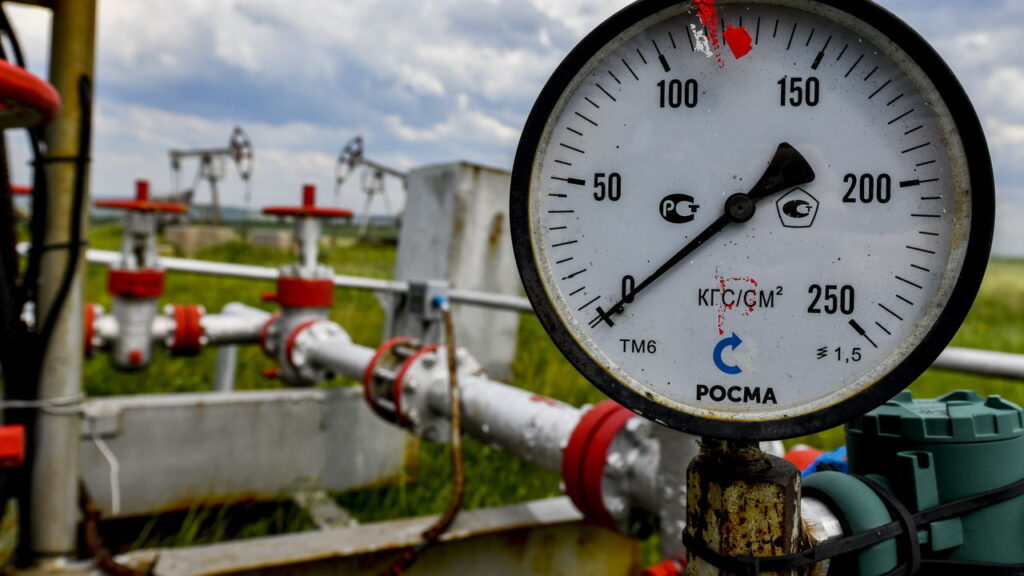The Russian economy, which for years has exhibited a degree of resilience amid various challenges, is now facing significant headwinds that have led to a marked slowdown. This shift can be attributed to a combination of international sanctions, fluctuations in global energy prices, and internal economic policies that have struggled to adapt to an increasingly complex global marketplace. The ramifications of this slowdown are being felt across various sectors, impacting everything from consumer spending to foreign investments.
One factor contributing to the deceleration of the Russian economy is the extensive sanctions imposed by Western countries. Following Russia’s military activities in Ukraine and increasing tensions with NATO, a host of nations, primarily in Europe and North America, enacted stringent economic sanctions. These restrictions have targeted key industries, including energy, finance, and defense, limiting Russia’s ability to engage in international trade. As a result, many Russian companies have found it challenging to source necessary imports, leading to production delays and a dip in overall economic activity.
Simultaneously, the nation’s heavy dependence on oil and gas exports has exposed it to the volatility of global energy markets. In recent months, the price of crude oil has fluctuated significantly, compounded by various geopolitical tensions and changes in global demand. Countries like China and India, which have been critical buyers of Russian oil, are also grappling with their economic challenges, leading to decreased purchasing power. As global energy prices remain unstable, Russia’s export revenue has taken a hit, amassing pressure on its budget and public finances.
Furthermore, internal economic policies have been slow to adjust to changing circumstances. President Vladimir Putin’s administration has traditionally emphasized state control over critical sectors, which has stifled innovation and competitiveness. The reliance on state-owned enterprises and the lack of a diversified economy mean that when external shocks occur, Russia is less equipped to respond effectively. Small and medium-sized enterprises, which are pivotal for job creation and economic dynamism, often find themselves sidelined in favor of larger, state-owned entities. This restrictiveness has led to diminished entrepreneurial activity and a general lack of economic diversity.
Consumer confidence in Russia has also faltered, with many citizens feeling the effects of inflation and uncertainty. The rising cost of goods, coupled with stagnant wages, has discouraged domestic consumption. As disposable incomes tighten, individuals are becoming increasingly reticent to spend, further exacerbating the economy’s sluggishness. This reduction in consumer spending not only affects businesses but also impacts tax revenues, creating a cycle that is difficult to break.
The agricultural sector, once viewed as a potential area for growth and self-sufficiency, is facing its own set of challenges. While Russia has made strides in increasing domestic food production, it still relies on some imports for key staples. The ongoing sanctions have disrupted supply chains, and adverse weather conditions have impacted crop yields, making it difficult for the sector to thrive.
Moreover, foreign investment, which traditionally played a vital role in bolstering the economy, has significantly waned. Investors are hesitant to commit to projects in Russia, unsure of the long-term viability of their investments amid the uncertain economic landscape. This lack of foreign capital leads to a slowdown in technological advancements and hinders infrastructure development, creating a long-term drag on potential growth.
In conclusion, while the Russian economy has demonstrated resilience in the face of adversity, the structural issues facing it, compounded by international sanctions and reliance on energy exports, are increasingly evident. The internal challenges, such as low consumer confidence and inadequate diversification, pose significant obstacles. As the global landscape evolves, Russia must confront these economic realities with comprehensive reforms that foster innovation, encourage domestic consumption, and attract foreign investment to stabilize and revitalize its economic prospects. Without such transformative changes, the future of the Russian economy remains bleak, at a critical juncture where immediate action is necessary to avert further decline.



